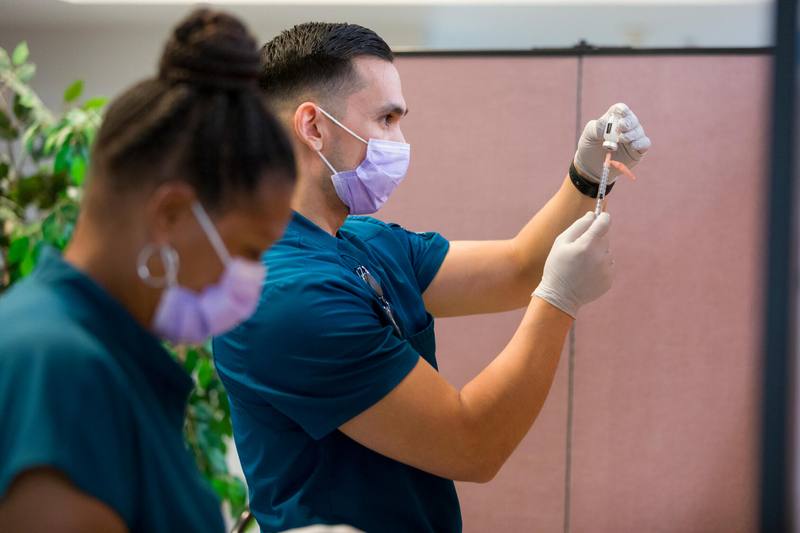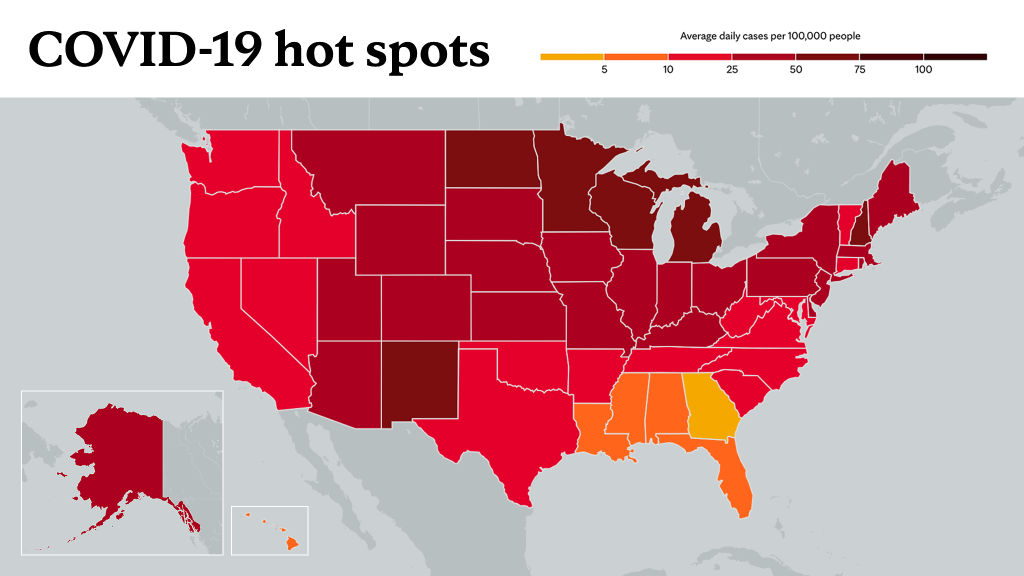
Vaccine drugmaker Pfizer says its studies show three doses of its COVID-19 vaccine neutralized the omicron variant while two doses reduced severity.
"These are studies where they try to look at how much antibody does it take to neutralize the virus in a test tube," says Dr. John O'Horo, an infectious diseases specialist at Mayo Clinic. "What they found in these studies is that you need a significantly higher titer, or concentration of antibodies, to neutralize omicron compared to delta or the previous variants. However, what they also found is that it will still neutralize at these higher titers."
"The good news here is that there isn't a complete immune escape. This is telling us that there will still be some effect from the antibody portion and, in all likelihood, from the vaccines. But at the same time, we expect there to be some decrease based on requiring this higher concentration."
Watch: Dr. John O'Horo talks about why getting a COVID-19 vaccine is more important than ever.
Journalists: Soundbites are in the downloads at the end of the post: Please courtesy: "John O'Horo, M.D./Infectious Diseases/Mayo Clinic."
What this really means for us as individuals is we're going to wait for the real-world data from vaccinated individuals, which will start to give us insights into how the other parts of the immune system play in. But also that getting your vaccine and, if you're eligible, your booster remains very important. That's the best way to get your viral antibody titers as high as possible and give you that good chance of being able to have some increased effect against omicron," says Dr. O'Horo.
For those who have been given a Moderna or Johnson & Johnson COVID-19 vaccine, Dr. O'Horo says there needs to be more data; however, he says he would not be surprised to see the same general trends of needing a higher titer of antibody to get the same the level of protection. He recommends everyone who is eligible to get a booster to optimize protection against COVID-19.
While much of the current focus is on omicron, Dr. O'Horo says COVID-19 infection rates remain high because of the delta variant.
"Despite all the concern around omicron, it remains critical to focus on delta because that's still what's here, and that's still what's filling up our hospitals, particularly in the Midwest," says Dr. O'Horo. "We know that the vaccines are incredibly effective against delta. And this is the best reason to get vaccinated or boosted right now, if you're eligible, because delta is a clear threat in the here and now. Omicron is something that has some concern."
Along with vaccination and getting a booster if eligible, other preventive measures remain important as well, including masking when appropriate, getting tested if you have symptoms or another reason, and physical distancing.
Looking ahead, Dr. O'Horo says the drug companies that make vaccines have investigated making specific boosters for variants.
"And we are going to have to see what kind of developments come out from the real-world data on efficacy in the near future, as well as what the what this looks like overall," he says. "It will be important to remember if there is a new booster in the spring for this, that that's something that's always been considered a possibility. However, that doesn't mean you shouldn't get a booster now. The COVID-19 boosters now still improve your risk profile better than anything. And just getting a booster now doesn't mean that there won't ever be another booster. Just like the flu, we have to get a shot every year as new strains come around."
Information in this post was accurate at the time of its posting. Due to the fluid nature of the COVID-19 pandemic, scientific understanding, along with guidelines and recommendations, may have changed since the original publication date.
For the safety of our patients, staff and visitors, Mayo Clinic has strict masking policies in place. Anyone shown without a mask was either recorded prior to COVID-19 or recorded in a nonpatient care area where social distancing and other safety protocols were followed.
For more information and all your COVID-19 coverage, go to the Mayo Clinic News Network and mayoclinic.org.
Learn more about tracking COVID-19 and COVID-19 trends.








